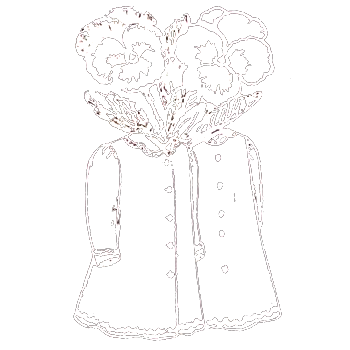Please Add To This List: Editor's Note
The idea of “canon” is appalling to Bernadette Mayer—
a club she would not enter alone without her students, comrades and contemporaries; she credits this piece of writing, Experiments, as “written with her St. Mark’s Poetry Project Workshop.” This piece of writing which performs in so many directions: as pragmatic muse, as granting of permission, as Ars Poetica about not “what is poetry,” but literally “what poetry can be”—which says it all about Mayer’s Poetics. Mayer’s poetics include just about everything (and radically well or better at that), but I’ll mention here poetry as communal practice: the poetry of dialogue whose daily place in the wordplay of society means everything to all of us. In Experiments, Mayer opens the door to generativity in the most democratic of manners. And how expansive and resonant the conversation! What a terrific symbol of our era!
Here we’ve included a version of Experiments handed out at Mayer’s Poetry Project Workshop (previously unpublished), as well as several responses from poets and non-poets alike. Some of the responses were written for this book, others taken from projects or pieces long in conversation with Bernadette’s Experiments or Sonnets. Some are written by readers who are not poets and knew nothing of Bernadette Mayer (my mother, for example) until they were asked to write for this book. We’ve included, as well, the first review of Sonnets by Dawn-Michelle Baude, a piece whose detailed analysis gives great context for any reader of Sonnets, and interesting insights into the poetry conversation at the time of first publication by Tender Buttons Press in 1989. We imagine this guide and sections of it will be helpful to a student or teacher of Mayer’s works or poetry in general, and hope it serves doubly as artifact for the aficionado. Maybe the first Experiment is to outline how each response poem we included relates to Bernadette Mayer’s work…
Mayer’s Experiments enact her magnificent oeuvre’s sensibilities: the reinvention of the traditional form in Sonnets; the expansion of consciousness in her hypnogogic poems, in Studying Hunger Journals, The Ethics of Sleep and other works; her original investigations in Memory; and etcetera and etcetera, the correlations and broadenings of Mayer’s works being endless and endlessly wonderful. Thank you Bernadette for your leadership in teaching us how to be better teachers, as in knowing we learn as much as we teach, that none of us are closed, that all of us are citizens in the land of language and what we say and how far we dream into everything can be reinvented, can be reimagined, can be improved towards a greater peace, a more open field.
Please add to this list.
—Katy Bohinc
Star Arkestress, Tender Buttons Press
